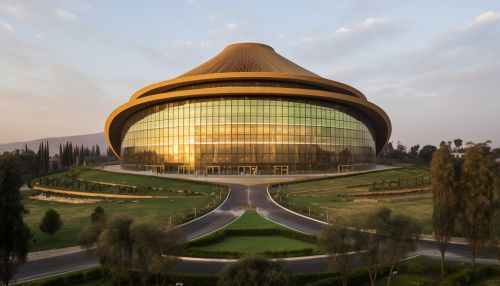African Union
Overview
The African Union (AU) is a continental body consisting of the 55 member states that make up the countries of the African Continent. It was officially launched in 2002 as a successor to the Organisation of African Unity (OAU, 1963-2002), with the aim of enhancing solidarity and cooperation among African states and to drive economic growth and development on the continent.
History
The African Union was established in Durban, South Africa, in July 2002, when the Organisation of African Unity was dissolved and replaced by the African Union. The decision to form a new organization was driven by the need to accelerate the process of integration in Africa, to enable the continent to play its rightful role in the global economy, and to address multifaceted social, economic, and political problems compounded by certain negative aspects of globalization.
Structure and Organization
The African Union is made up of both political and administrative bodies. The highest decision-making organ is the Assembly of the African Union, made up of all the heads of state or government of member states of the AU. The AU also has a representative body, the Pan African Parliament, which consists of 265 members elected by the national parliaments of the AU member states. Its administrative arm, the African Union Commission, is made up of a number of Commissioners dealing with different areas of policy.
Objectives and Principles
The African Union has several objectives including achieving greater unity and solidarity between African countries and the peoples of Africa, defending the sovereignty, territorial integrity and independence of its Member States and accelerating the political and socio-economic integration of the continent. The AU also aims to promote and defend African common positions on issues of interest to the continent and its peoples, and to encourage international cooperation, taking due account of the Charter of the United Nations and the Universal Declaration of Human Rights.
Achievements and Challenges
The African Union has made significant strides in fostering African unity and cooperation. It has been instrumental in addressing issues such as peace and security, economic integration, and social development among others. However, the AU has also faced significant challenges, including political instability in some member countries, inadequate funding, and criticisms over its decision-making processes.


